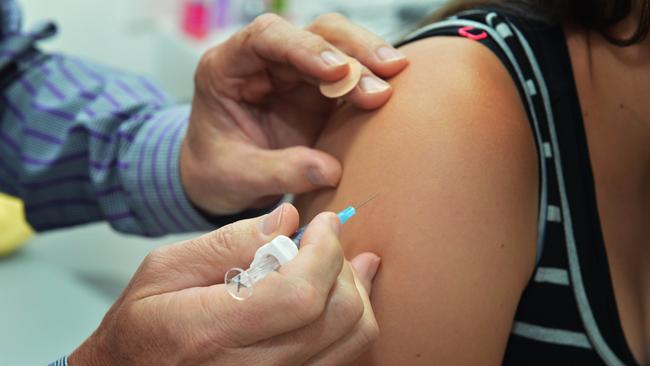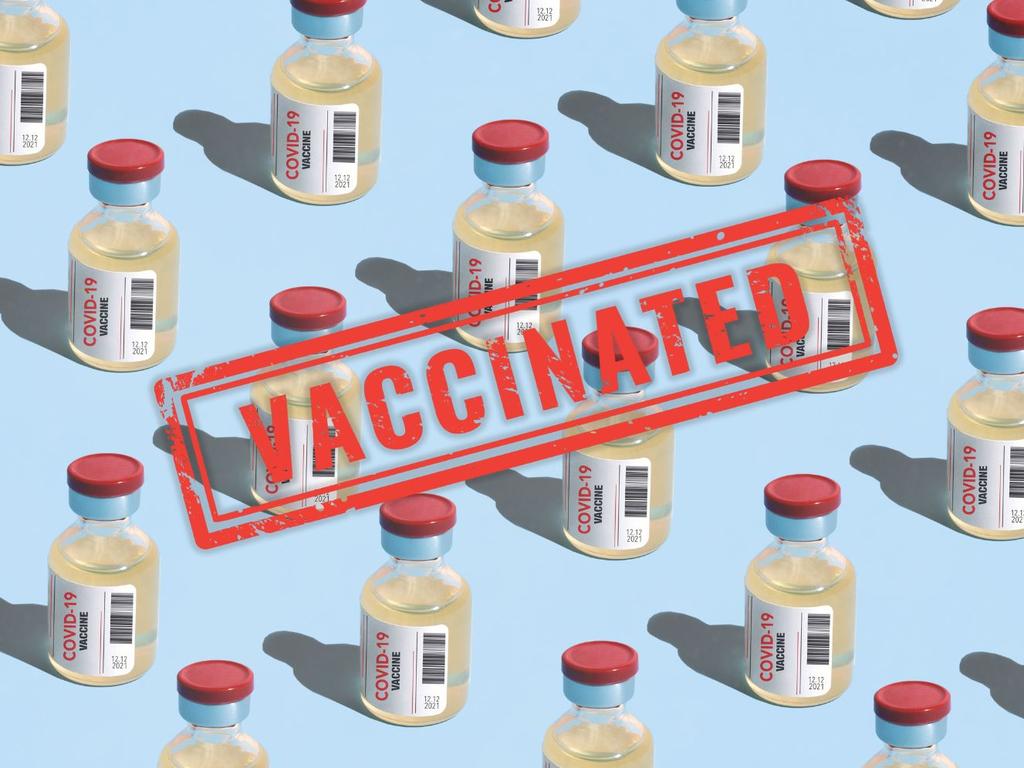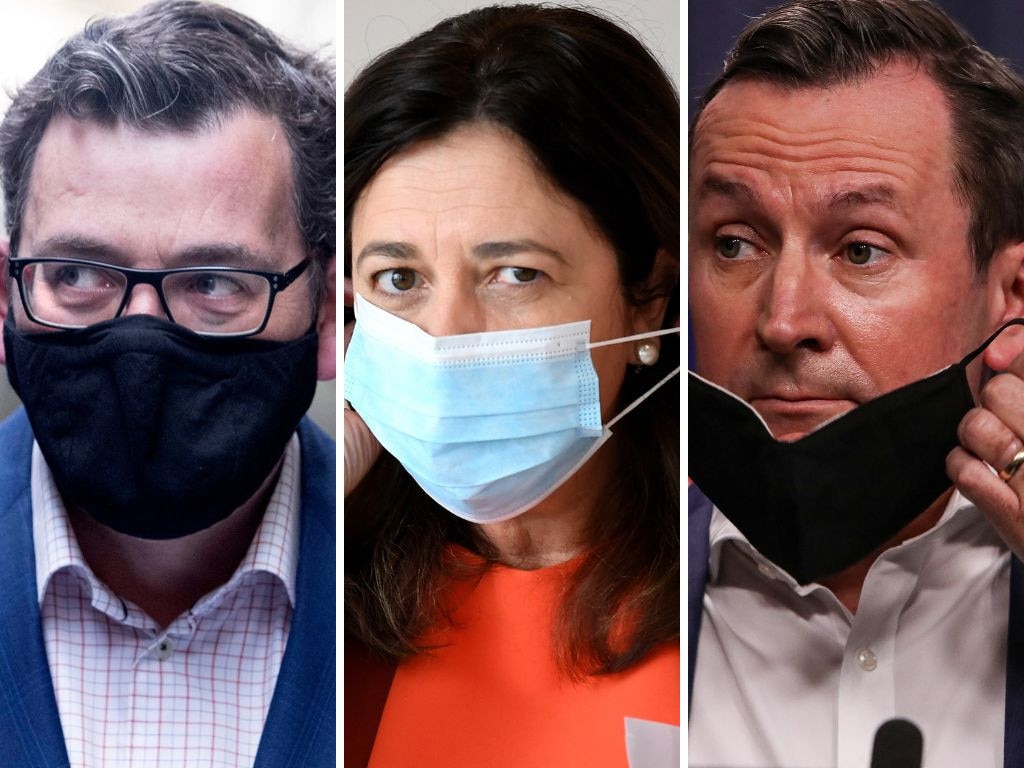True state of vaccine hesitancy revealed as Moderna factory opens
Australia finally has sovereign manufacture of mRNA vaccines as new analysis reveals six in ten of all parents are feeling distressed since the pandemic over vaccinating their children.

Commercial scale mRNA vaccines will be produced onshore for the first time in Australia with the opening of US pharma company Moderna’s Melbourne factory, as new analysis reveals six in ten of all parents are feeling distressed since the pandemic over vaccinating their children.
As the US pharmaceutical company Moderna officially opens a commercial-scale mRNA manufacturing facility in Melbourne on Wednesday morning – three years since a $2 billion deal was secured by the Morrison government early in the pandemic – vaccination sentiment and trust in public health is under the spotlight.
Moderna – which grew from a US biotech company to a global pharma giant during the pandemic as mRNA technology came of age – is producing test batches and awaiting final licensing approval to produce Covid-19 vaccines. Respiratory Syncytial Virus vaccines for the over 60s are approved by the FDA and are under review by the regulator in Australia. A combined Covid-influenza vaccine is also planned.
Moderna’s supply of mRNA vaccines from its factory at the Monash Technology Precinct in Clayton in Melbourne’s southeast shores up sovereign manufacturing of mRNA vaccines in Australia and is an important step in future pandemic preparedness. These preventive treatments have revolutionised immunisation and have broad horizons in the future including expanding to the treatment of cancer and potentially genetic diseases.
The Moderna deal also links Australian scientists with an international pathway of research and development. Fourteen clinical trials advancing the technology are already underway.
“For Australia to be able to participate in that research ecosystem is really important,” said Melbourne University Professor of medicine Terry Nolan, a former head of the Vaccine and Immunisation Research Group at the Peter Doherty Institute for Infection and Immunity and the Murdoch Children’s Research Institute. “And local manufacturing capability … is something Australia should very much be participating in. It’s a no-brainer that this is a good idea for Australia, otherwise we’re just going to continue to be a consumer rather than a producer.”
The recent elevation of the controversial Trump pick of Republican Robert F Kennedy Jr as director of Health and Human Services in the US has raised fears that post-pandemic anti-vaccination and science scepticism articulated by the American politician could have worldwide impacts. Mr Kennedy Jr has previously questioned the safety of vaccines and acted as an activist promoting debunked theories that vaccines are linked to autism and other health issues. Covid-19 vaccines have been associated with rare side effects such as myocarditis and pericarditis and a very small number of people have experienced severe and as yet little-understood vaccine injuries.
Although the political factors and widespread anti-vax sentiment in the US is not present except as a small movement on the fringes of society in Australia, very real anxieties exist in ordinary Australian over vaccination in the wake of the pandemic.
These concerns have been laid bare in comprehensive data on childhood vaccination published on Tuesday by the National Vaccination Insights project, established by the nation’s foremost vaccine research immunisation the National Centre for Immunisation Research and Surveillance. The NCIRS research examined access and vaccination acceptance barriers associated with partial childhood vaccination.
Federal health minister Mark Butler, who will attend the factory opening on Wednesday, described sovereign supply as “a major step forward in helping protect Australians against future pandemics”.
Mr Butler referenced last month upon the release of the Covid-19 Response Inquiry final report, concerning issues of trust in public health post-pandemic and cited a precipitous decline in childhood vaccination.
However, social scientist Julie Leask, who is a Professor of Public Health at University of Sydney’s Infectious Diseases Institute, said the overall childhood vaccination coverage nationwide had dropped only between one and two per cent. Larger figures cited were accounted for by those whose children not vaccinated on time. Overall declines in kids’ vaccination on the National Immunisation Program were not uniform across the country.
“On-time vaccination is important because the vaccination schedule is timed for the child to be getting the protection at the time they really need it,” Professor Leask said. “We’ve heard from providers and from immunisation coordinators in some regions that it’s much harder to get a vaccination appointment … and the workforce is depleted from the pandemic.”
The NCIRS research found that more than one in ten parents reported that they could not cannot afford costs associated with vaccinating their child, and another one in ten said it was not easy to get a vaccination appointment when their child’s next jab was due.
Even though Moderna is not producing vaccines on the children’s National Immunisation Schedule, medical affairs director in Australia, Dr Andrea McCracken, said vaccine sentiment was something that the company was closely monitoring amid a large degree of confusion in the community about when and for whom Covid-19 boosters were advised. Australia also faced a significant challenge in its influenza vaccination rates.
“Covid has not gone away, … one of the challenges is obviously around vaccine fatigue. “People were faced with all sorts of information that was very confusing, and there was a lot of misinformation. There was advice that wasn’t necessarily clear and transparent.
“I think that all we can do is keep presenting the evidence, and that evidence-based research I think will resonate with many individuals.”
Moderna’s chief legal counsel Shannon Klinger, who is American, said vaccine hesitancy was “not a new topic” and was widely recognised pre-pandemic as one of the most significant threats to public health but was exacerbated significantly by the pandemic.
“During the pandemic, globally, we’ve seen the largest drop in global childhood vaccination rates in more than 30 years,” “There seems to be an ongoing erosion of trust in vaccines. We really believe that we’ve got to come together almost as a village or a community to address that issue.”







To join the conversation, please log in. Don't have an account? Register
Join the conversation, you are commenting as Logout